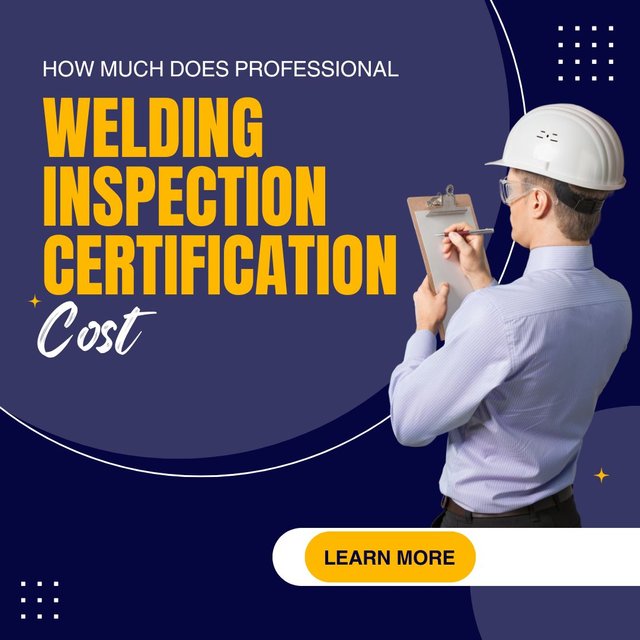How Much Does Professional Welding Inspection Certification Cost?
For companies and professionals in industries like construction, energy, oil and gas, and shipbuilding, the quality of welds is non-negotiable. This is where professional weld inspection certification comes in—providing assurance that individuals have the knowledge and skills to evaluate welds to the highest standards. But how much does it actually cost to achieve this certification? Let’s break it down so you can plan effectively.
Why Welding Inspection Certification Matters
The demand for certified inspectors continues to grow as safety regulations tighten across industries. Certified inspectors ensure that welding processes comply with codes and standards, reducing the risk of defects, accidents, and costly repairs. Beyond compliance, inspectors also help companies maintain reputations for quality and reliability.
Additionally, certification often enhances career prospects. Professionals who hold internationally recognized qualifications—such as AWS Certified Welding Inspector (CWI), CSWIP, or ISO-based certifications—are in higher demand and can command better salaries.
Factors That Influence the Cost
The cost of professional Welding Inspection certification can vary widely depending on a few key factors:
- Certification Body – Different organizations (e.g., AWS, TWI/CSWIP, ISO) set their own fee structures.
- Location – Training and exam fees differ by country or region due to local overheads and demand.
- Level of Certification – Entry-level certifications generally cost less, while advanced levels with specialized modules require higher investment.
- Training vs. Exam Fees – Training courses are often optional but highly recommended, adding significantly to the total cost.
- Additional Expenses – Don’t forget travel, accommodation (if training is not local), and study materials.
Typical Costs in 2025
• Entry-Level Courses: For beginner-level certifications, costs may range from $1,500 to $3,000 depending on the provider.
• Intermediate/Advanced Certifications: Programs like CSWIP 3.1 or AWS CWI can cost between $3,000 and $6,000 including exam fees.
• Specialized Modules: Advanced courses focusing on subsea welding, pipelines, or ultrasonic testing can push costs beyond $7,000.
• Renewal Fees: Most certifications require renewal every 3–5 years, typically costing a few hundred dollars.
Is It Worth the Investment?
For both individuals and companies, certification pays for itself in the long run. Certified inspectors help businesses avoid costly rework, failed audits, or worse—structural failures. Professionals benefit from increased career opportunities, higher earning potential, and international mobility.
When combined with other quality systems such as Weld Coding and robust quality management processes, certification ensures that every weld can be traced, verified, and confidently approved.
How to Minimize Costs Without Compromising Quality
• Choose the Right Certification Body: Select the program most relevant to your industry.
• Plan Ahead: Early registration often reduces costs, while last-minute bookings can increase fees.
• Employer Sponsorship: Many companies cover part or all of the cost as an investment in workforce quality.
• Bundle Training and Exams: Some providers offer package deals that are more cost-effective.
Final Thoughts
The cost of professional weld inspection certification may seem significant at first glance, but the return on investment is undeniable. By ensuring weld quality, safety, and compliance, certified inspectors not only save companies thousands in potential rework but also elevate their own careers. Whether you’re a professional looking to advance your skills or a business aiming to strengthen quality assurance, this certification is a worthwhile step toward long-term success.
